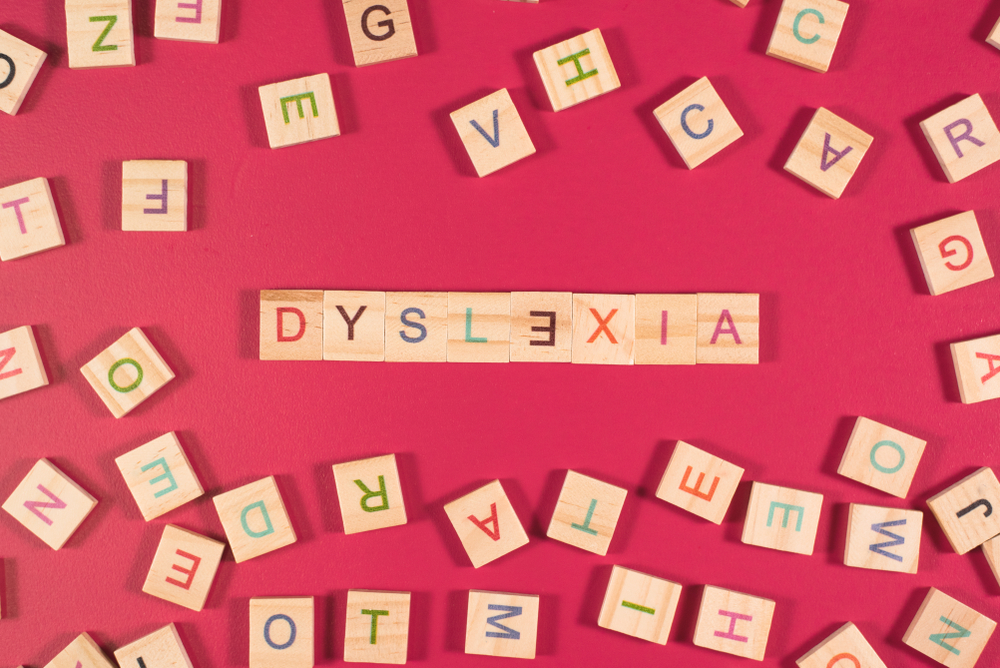Vocabulary development Normal Writing Worksheets for Ages 6-9
7 filtered results
-
From - To
Boost your child's language skills with our Vocabulary Development Normal Writing Worksheets for Ages 6-9! Specially designed to enhance your child's vocabulary, these worksheets serve as fun and educational tools to improve reading, speaking, and writing abilities. Each worksheet encompasses engaging activities such as word matching, sentence completion, and creative writing prompts, making learning enjoyable. Our expertly crafted exercises support critical learning milestones, building a robust vocabulary foundation that aligns with school curriculums. Perfect for both classroom and home learning, these worksheets guarantee to inspire confidence and promote lifelong literacy. Unlock your child's potential today!
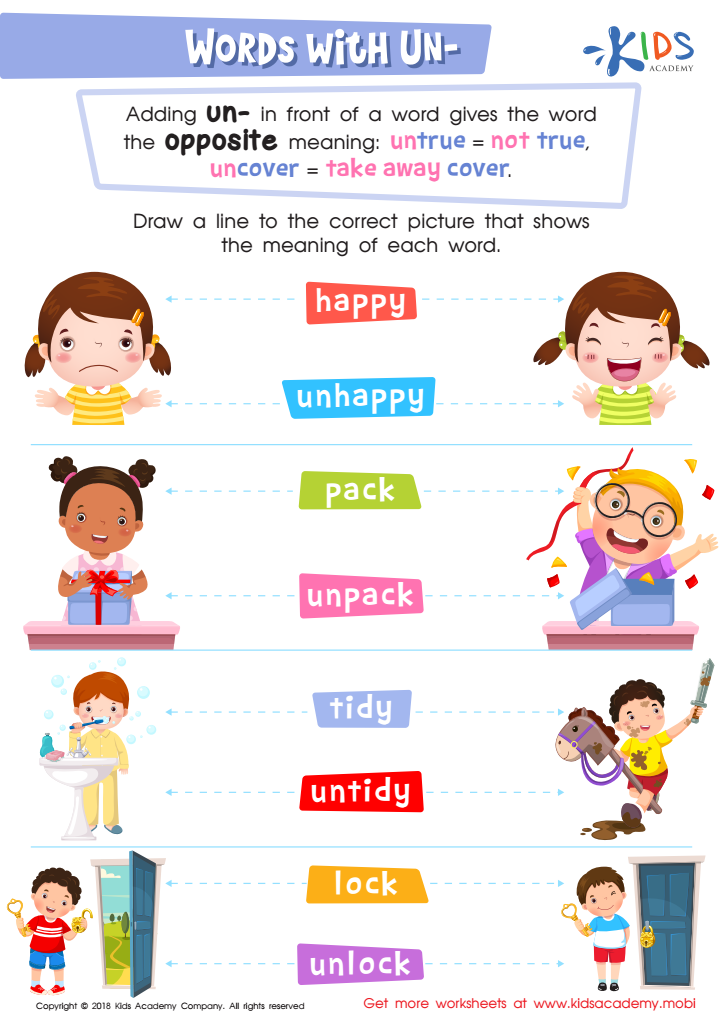

Words with Un– Worksheet
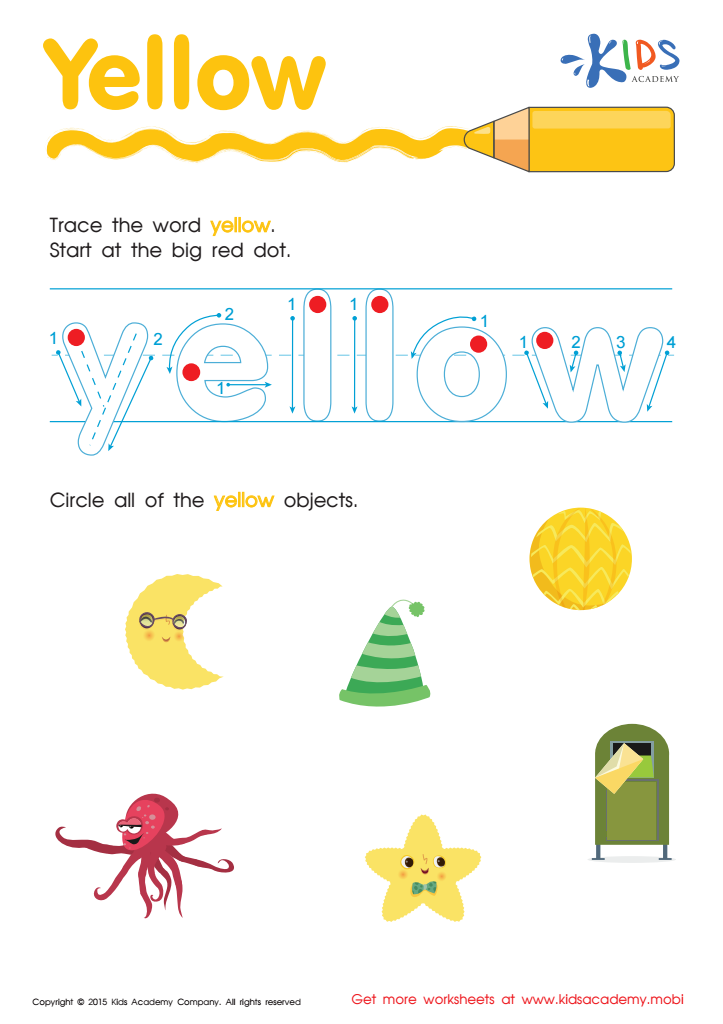

Yellow Tracing Color Words Worksheet


Phonics and Word Recognition: Assessment 3 Worksheet
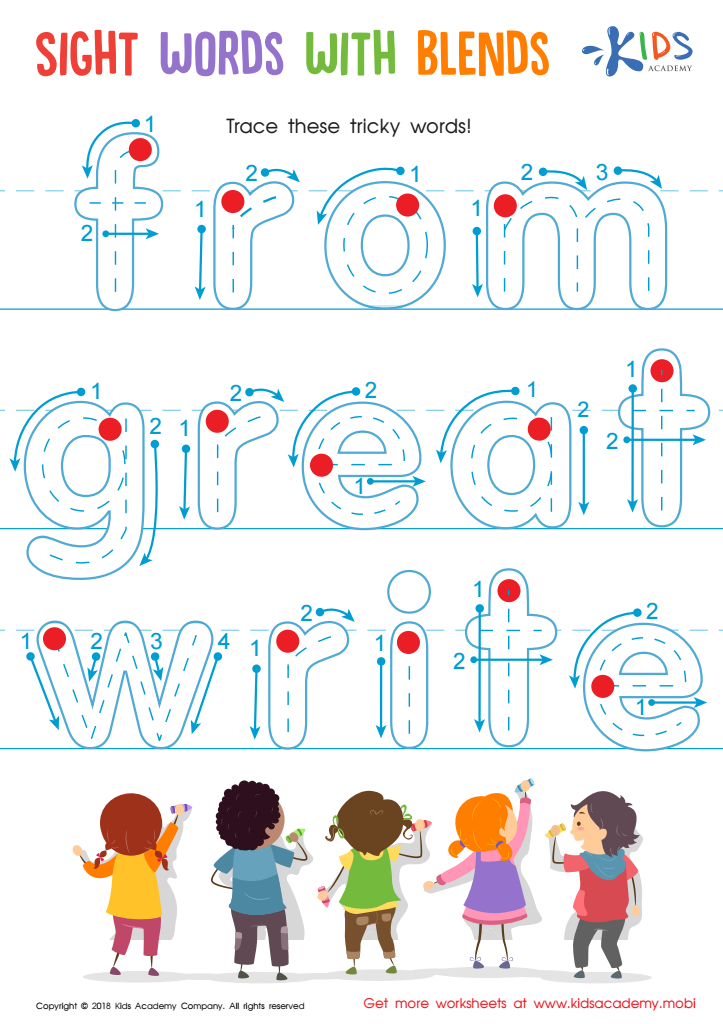

Sight Words with Blends Worksheet
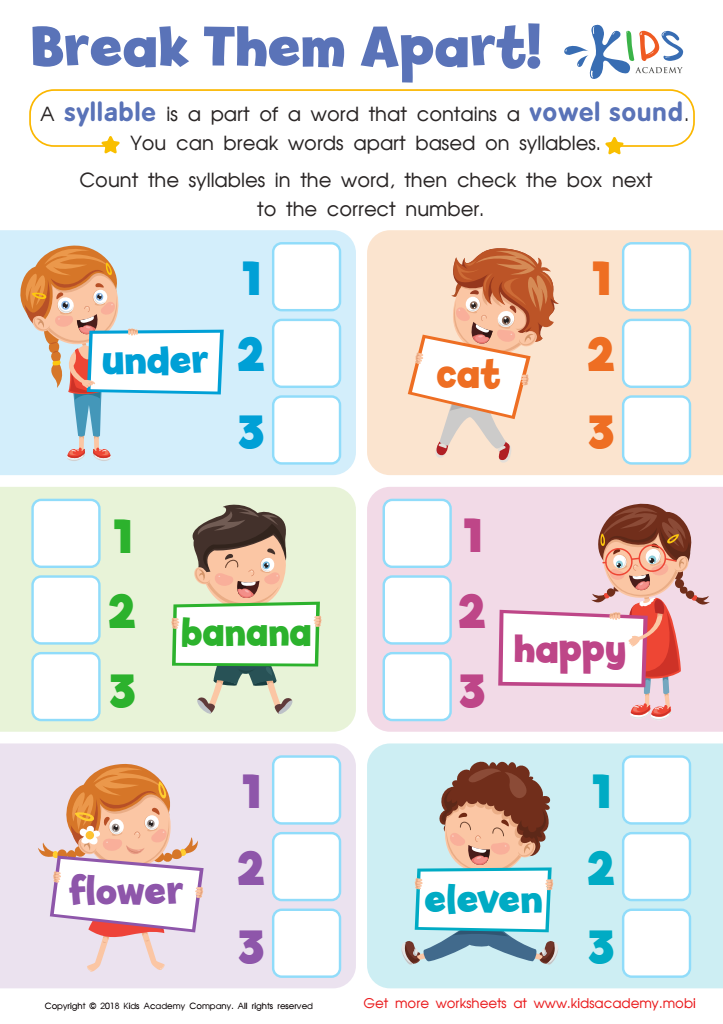

Reading: Break Them Apart Worksheet
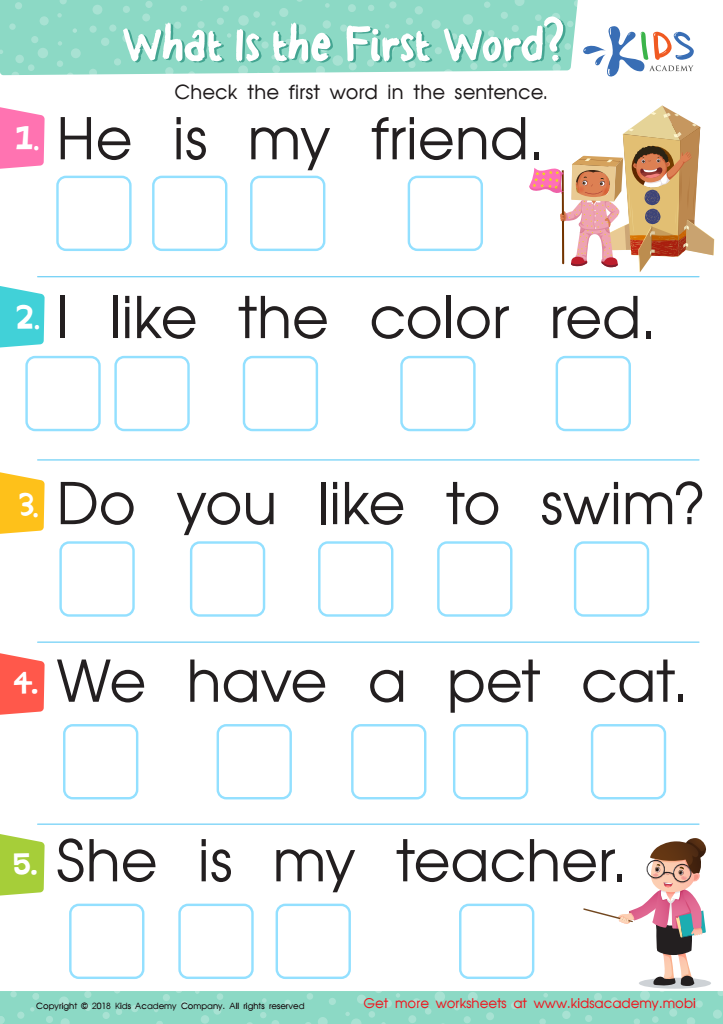

What is the First Word? Worksheet
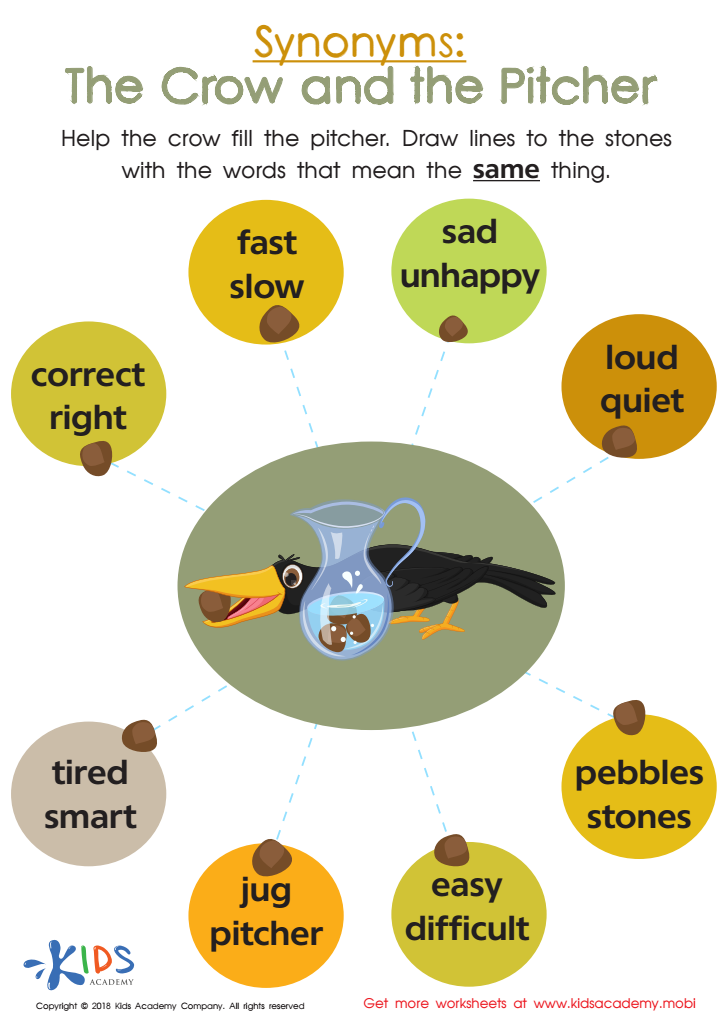

The Crow and the Pitcher Synonyms Worksheet
Vocabulary development is a critical aspect of early childhood education, especially for children aged 6-9. At this stage, children's brains are like sponges, readily absorbing new words and concepts. A strong vocabulary is foundational for effective communication, allowing children to express their thoughts, emotions, and ideas clearly. This not only aids social interactions but also builds confidence.
Moreover, vocabulary is intrinsically linked to reading comprehension and academic achievement. Children with robust vocabularies can understand more complex texts, follow instructions better, and grasp new concepts quickly. This sets a strong groundwork for future learning and leads to improved performance in all subjects, not just language arts.
Additionally, a rich vocabulary enhances critical thinking skills. Words are tools for thought; a broader vocabulary provides children with the means to analyze situations more effectively and creatively solve problems. The joy of discovering new words also fuels a lifelong love for reading and learning, opening doors to diverse perspectives and cultures.
Parents and teachers play a crucial role in nurturing this aspect of growth by engaging children in conversations, reading aloud diverse books, and encouraging a love for words through playful activities. By prioritizing vocabulary development, they are investing in children's cognitive and social-emotional success, setting them up for a brighter, more expressive future.
 Assign to My Students
Assign to My Students






.jpg)



